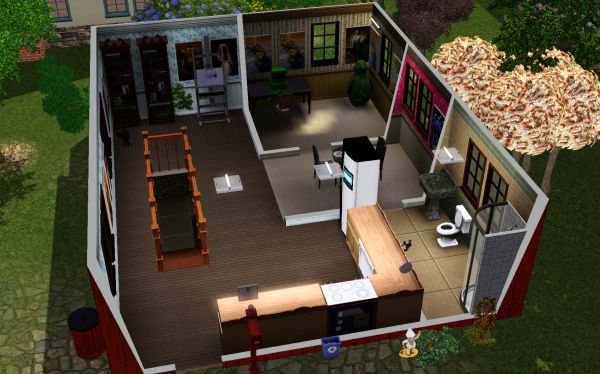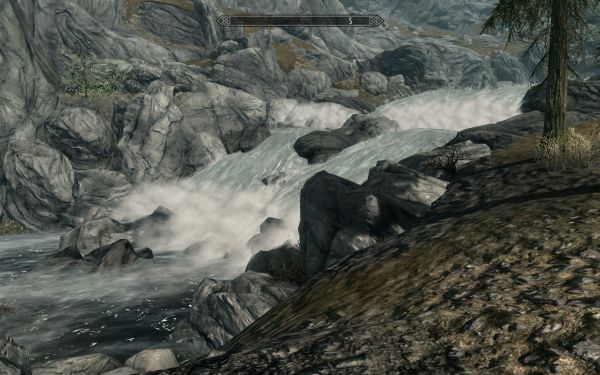
We may think we live in the post-industrial era, but we have actually just moved the smokestacks out of sight.
This entry is inspired by the book The World in 2050, published by The Economist, a magazine I have spoken well of over the years. In its chapter on global warming, the book takes the position that it is already too late to avoid the climate change in 2050, but it is still not too late to avoid multiplying this for the centuries after this. Of course, most people who read this book are probably grownups at the very least, so it may not interest them much how the world will look in 2070.
Climate change literally happens at a glacial pace. And I mean literally literally, not the way people these days have taken to using the world “literally” as an amplifier. The world is dotted with glaciers, and these grow and shrink very slowly, thus the “glacial” speed. The melting of these is a major part of the climate change. As long as there is plenty of ice to melt, the temperature will not increase rapidly, since the process of melting (technically called a “phase transition”) requires a much larger amount of heat than simply warming the same amount of water by one degree.
We have been able to pour large amounts of carbon dioxide (and some methane) into the atmosphere and the temperature has only increased a little. We have literally (literally) “seen nothing yet”, in the sense that all that has happened at any one place on Earth lies within the natural band of fluctuation. Whenever a particular place is extremely warm or cold or humid or dry, someone will usually be able to dig out that it was even more so in 1937 or 1899 or some other time in the past, and conclude that It Doesn’t Really Matter, the more things change the more they remain the same.
Some of my friends, God-fearing men and women, are absolutely convinced that man-made global warming is just a socialist hoax. This is a reasonable thought: When socialists agree on something, it is probably something nefarious. In this case, however, the greenhouse effect has been known since well before the first internal combustion engine. We just never thought it would be a problem. It will be a problem, but as usual not one socialism can solve. It will also be an opportunity, something socialism is spectacularly bad at.
The amounts of carbon dioxide in the atmosphere are in fact quite small even now, by interplanetary standards. Venus has an atmosphere of mostly CO2, while here on Tellus it is less than one tenth of a percent! It is natural to think that this cannot possibly have any noticeable effect. Therefore, the whole climate hysteria is simply a way for the left to introduce even more taxes, now called “green taxes” or more correctly “carbon tax”.
***
In so far as carbon taxes come in addition to other taxes, I am as wary of them as any conservative. Since the panic is still entirely theoretical, if we increase taxes now it is a safe bet that the government will use the money to play Santa Claus and barrel pork to important voters so as to remain in power and live it up. The idea that the green taxes will be used to combat or adapt to climate change is unlikely to actually be practiced until some visible horror arrives, such as water lapping into the streets of London and New York. This is still some years off, thank the Light. Thus, we are not going to do anything, except fly around in jet planes and hold conferences about how to reduce the use of jet planes, stuff like that.
Meanwhile, we continue to pump up oil and gas and dig up coal and tar sand, and burn it off as fuel mostly. Just how much we drill depends in principle on the expected demand, but there is also a time delay because you can’t just sail out in the Arctic Ocean one day and come home with a ship full of oil. It takes several years to make all the installations ready. But in principle, it is the demand that determines the drilling. And it does so by influencing price. The higher the demand, the more people are willing to pay for fossil fuels, and the more money there is to earn from drilling, and the more places people will drill.
Enter the carbon tax. Europe has had such taxes for so long now, it is taken as granted. Here in Norway, gas now costs $2.68 per liter, which is about a quarter of a gallon. So around $10 a gallon, most of it tax. Scientists are still uncertain whether this has had any effect on driving distance at all, but it is thought that people may have switched to modern, fuel-efficient cars slightly earlier than they otherwise might. It is hard to quantify, though, since we don’t have a parallel Norway in which the taxes remained low.
But what if we dared raise taxes to a point where it actually would curb demand? Wouldn’t we save the world through taxation, for the first time? After all, with higher prices, demand would go down; but the higher prices would not transfer to the oil companies as higher profit, so drilling would not increase. Win! Or…?
Well, yeah, to some extent this would work – if the whole world did it. That would require a massive alien invasion, and I think that would be more of a problem than the greenhouse effect. So what happens in the real world when Europe increases its “green taxes”?
The demand for oil goes down just a little. This causes the price to go down just a little too – perhaps a dollar or two, although that may be exaggerating. What happens next? The slightly cheaper oil means the remaining 6.6 billion earthlings can afford to use MORE oil than they otherwise would, and they will do so until a new equilibrium appears, close to the previous.
***
I don’t think people really have realized that we already may have passed “peak oil” in its original sense, not in the sense of the scare stories where suddenly cars become useless because one day there is no gas. It does not work that way. What happened was that one day we extracted the most oil we had ever done, and the next day we didn’t, because it was so hard to get to. The IEA, which is the closest there is to an official authority on energy, claim that this happened in 2006 with crude oil. However, thanks to technologies for converting oil from tar etc, actual peak oil may have happened in 2011 or even be in the near future. In any case, what really happens is that demand is increasing at a whole other scale, as emerging markets keep growing toward western levels of energy use, while production of fossil fuels (including gas and coal) is rising more slowly and will eventually fall.
Because energy demand is rising steadily among most of the world’s population, fossil fuels are already becoming more expensive year by year. If we suppress the demand in one corner of the world, this is a godsend for the rest of the planet, since demand there is limited by the high cost. The production remains the same – the prices are already so high that it is the technical challenges that delays production, not waiting for a better price. Even if Europe and the USA both completely stopped using fossil fuels, which would definitely send the prices down, all fossil fuel will still be gone over the course of a generation or so. What remains will be what is ridiculously hard to get to, so that you would need a price of $1000 a barrel or more to make it worth it. Actually, I confidently predict that crude oil WILL reach $1000 a barrel unless something miraculous happens, although at the time it will be used as a raw material in chemistry rather than for fuel.
The upper limit of the fuel price is going to be decided by something entirely different: Alternative energies. When sun power, wind power, wave power etc gradually come online in large enough quantities, the demand for oil will begin to fade. But as I said, it will still be valuable for chemistry. And alternative energy is still dependent on government subsidies even though crude oil now costs over $100 a barrel on a regular basis. There are only a few limited, local uses where renewable energy is profitable today. This will change, but it will take time (and an even higher oil price).
The short of it is, aggressive taxation in the rich nations may delay the End of Oil – the point where almost all of it is in the atmosphere – by somewhere from weeks to a couple years, depending on how extreme the taxes are. The effect is utterly dwarfed by the ever growing demand and the growth of alternative energies, which will decide the cut-off point of the fossil fuel price and thus the speed of emptying the known reserves. The taxes are almost but not quite irrelevant.
Let us be excessively optimistic, unrealistically so, and grant the remote possibility that Draconian carbon taxes may delay by as much as five years the day when all fossil fuel is converted to CO2. But climate change is a process that continues at a slow, steady pace for several centuries. A handful of years delay (during which we will still have extracted and burned ALMOST all the oil, gas and coal, just not absolutely all) will not be visible in the climate statistics – it will drown in the random noise, the wobbling of the planet, changes in the solar wind and natural fluctuations in the cloud cover, the occasional volcano eruption, stuff like that. We won’t ever notice.
***
So is there any reason at all to have carbon taxes? Oh yes, but on one condition: That they replace other taxes. It is better to tax something that is less useful, such as oil, over something that is more useful, such as work. If we can make people drive a little less, it won’t do much good but it won’t do much harm either. If we make people work less, everyone will suffer.
So moving taxes from production to consumption is generally a great way to make the world a better place without actually cutting the taxes. I guess doing that is too much to hope for. But if we move taxes to fossil fuel use, this will cut itself gradually over time. When the fuels are gone, they are gone. And it will likely happen over the span of a generation or so. At that point, the more of the taxes that are on fossil fuels, the better, since no one will be paying them. Go go green taxes! ^_^








